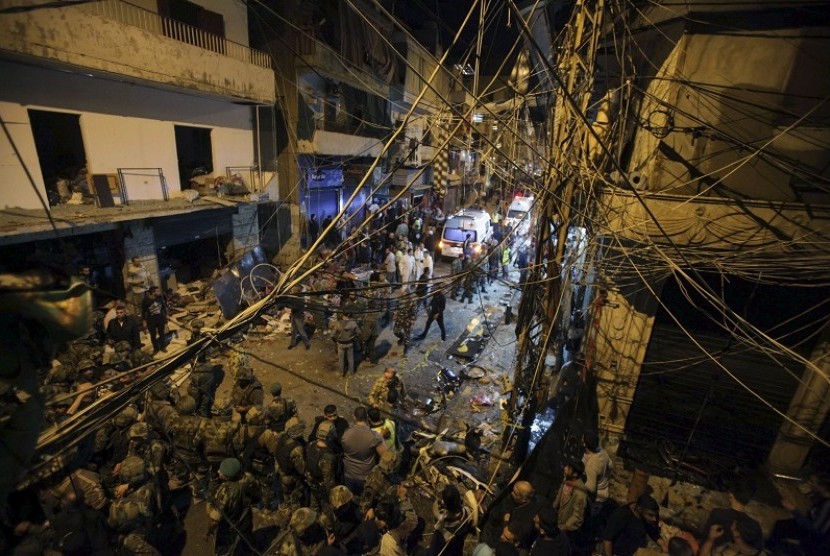REPUBLIKA.CO.ID, BEIRUT -- Illegal crossings on the borders with Syria are imposing great concerns to the Lebanese security agencies particularly following the twin bombing at the Burj el-Barajne neighborhood in the southern suburbs of Beirut that killed at least 43 and injured more than 250.
The investigation has revealed the role played by the smugglers to facilitate the infiltration of the suicide bombers from Syria to Lebanon.
"The illegal crossings between the two countries have been used since the independence of the two countries, to smuggle all kinds of weapons, heating fuel and people", Abou Ahmad el-Saadi, known as the "godfather" of smugglers, told Xinhua.
The 70-year old smuggler lives in the south eastern border town of Shebaa, and has been active in this illegal business since his youth.
"We use the mules to cross the borders because of its endurance to cross the rugged mountain paths carrying tobacco, fuel oil gallons, electrical equipment and weapons", he added.
But he noted that around 5,000 to 6,000 persons were smuggled monthly these days, most of whom are Syrians.
A Lebanese security source stressed to Xinhua that the smugglers are now running professional networks, use sophisticated communications and 4x4 cars, and are armed.
Read: Minister: Lebanon arrests 9 over Beirut bombings
The source who spoke on condition of anonymity added "these networks have large experience in falsifying documents and legal stamps, adding that the state security forces have recently arrested members of a network in the Bekaa city of Zahle who were rigging the official stamps of the General Security in order to facilitate the in and out of Syrians via legal crossing points.
He added "the forces seized forged stamps used at the borders of the Gulf Arab countries, Egypt, Morocco, Tunisia, Libya and Jordan."
The source asserted that the "smugglers are making large sums of money and the enhanced security measures at the legal border crossings between Lebanon and Syria is adding to their wealth as they raise their prices."
Tarek Khodeir, the mayor of Ain Ata, a south east border town of Mount Hermon separating Lebanon from Syria, told Xinhua that "there are many illegal crossings on the hills of Mount Hermon that have been used since I can remember to smuggle food stuff and fuel."
But he stressed that these days those crossings are under a strict surveillance of the Lebanese army and are rarely used since the army deployment in 2012.
Salem el-Ali, a known smuggler said that the smugglers usually charged 300 to 800 U.S. dollars per person, yet adding that the price varies depending on the situation of the person, and usually is high when he is wanted by the police.
Smuggler Abdel Baset Houri said many in the business got killed by the Lebanese army or the Syrian border police in the past, while others died because of the extreme weather in the winter.
Another Lebanese security source engaged in the anti-smuggling operations on the eastern borders told Xinhua that their "efforts are hindered by the geographical interaction between the Lebanese and Syrian villages and the intermarriage relations between the families.
He added "there are entire Lebanese families who live in about 30 villages in the Syrian territories, particularly in the Qussair neighborhood of Homs, and these families have been used to enter Lebanon through illegal crossings to avoid the long trips to reach the legal entry ports."
He also said that "some arrests have been made but once the smugglers are released after only a few weeks in prison, they return to their practiced business because the punishment is not stringent while the money returns are high."
"The laws should be amended... to apply strict punishments on the smugglers especially that the smuggled people could be terrorists planning to carry out attacks against the country."


